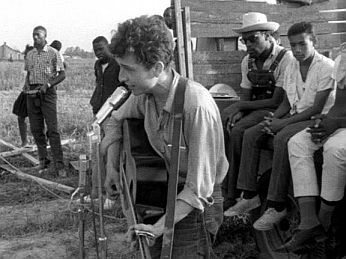
In high school, I had the same teacher for Spanish III Junior Year and Spanish IV Senior Year, much to my then chagrin. I was all about having as many teachers as possible in high school in order to get that fully well-rounded experience. I wanted to meet new knowledgeable adults and not have the same ones several years in a row, like I did in grade school. In Spanish III, I was not exactly met with much strife as Spanish came somewhat naturally for me in school, but I struggled to stay awake and remain enthused in class, which I had first hour at 8:00 a.m. Mostly I went through the basic daily motions- answering monotonous questions, passing frequent vocab quizzes, etc. I did not particularly enjoy my teacher because she was pretty hard on us, stressing retention of vocabulary, pronunciation and a general understanding of Spanish culture, while most of us just wanted to pass the class to get credit that could be applicable to college later on. I used to leave class every day with my head ringing with her much-uttered mantras: "You guys should know this" and "Es la verdad?"

Spanish III - 1st Hour. Awkward, devoid of color and bursting at the seams with future Spanish dropouts.
It wasn't until about the end of junior year that I began to find myself somewhat engaged in class, actively seeking to understand the language and its cultural impact. I even began to side with my teacher when students vied boisterously for easier tests, given less often. I found myself inexplicably drawn to the woman I previously discounted, whose eccentricities and passion grew on me. As a result, during Spanish IV the next year, as I began to grow out of my shell socially, I was able to enjoy learning Spanish, and, yeah, maybe take advantage of my teacher's fondness for me by having a bit of fun in class knowing I wouldn't really be punished. But it was all in good cheer, and my enthusiasm rubbed off on some other students in the class, resulting in a warmer, collective, more engaging class period. Even the lights seemed brighter and the room warmer in comparison to junior year.
Anyway, I learned to apply my zeal and spontaneity to my homework assignments, particularly the infrequently assigned and collectively dreaded essays. One essay, for instance, dictated that we write our own conclusion to a story we read in class, entitled Una Carta a Dios by Gregorio López y Fuentes. I decided to have some fun and stray from the commonly written endings where the main character gets his money and winds up happy with his family, or the main character loses his money or whatever. Instead I opted to write a Coen Brothers-style ending, dealing with issues and themes such as greed, ignorance, lust, betrayal, love, homosexuality, corruption, and murder, fully aware that most of the latter were neither written into the original story itself nor intended to be extracted from the text by readers. My ending will make no sense if you haven't read the short story itself (though it doesn't make very much sense even if you do read the story). I had Google do a quick translation of the story, originally written in Spanish, but Google, like every other online translator, is faulty to a degree, so there are a couple points where the grammar is kind of spotty, but you get the gist of it anyway:
-Una Carta a Dios (A Letter to God) por Gregorio López y Fuentes-
And here's my translated ending to the Spanish folk tale:
"The jefe became angry at Lencho's ignorance, so he and his employee [it's a man, by the way] went to Lencho's house in order to obtain his money. When Lencho saw the two from the post office approaching, he grabbed his gun and went outside, down the long road as it became dark.
-Give me the money! he shouted.
-Never.
And suddenly, Lencho and the jefe fired their guns at each other. Lencho, with a bad wound, fell to the earth and died. Then the jefe looked at his employee to his left.
-Let's get the money.
But the employee didn't respond. He had a wound in his heart, as a result of Lencho's bullet.
-Employee!! shouted the jefe. But it was too late.
In his depression, the jefe picked up Lencho's gun.
-But for the grace of God, he said to the body of his employee, his lover, while he drew the gun to his temple.
A pair of yellow lizards on a peak near the hill of the house of Lencho, of the starving children, of the waiting old woman, scattered at the sound of the discharge of the gun."
(cut to black, cue credits playing over "Santa-Fe" or "Outlaw Blues" or "When I Paint My Masterpiece" or basically any loud song by Bob Dylan that would fit the mood)
BONUS: If you're Facebook friends with me you can watch me comically stumbling my way through a presentation on Cuban migration to America!!!1!












